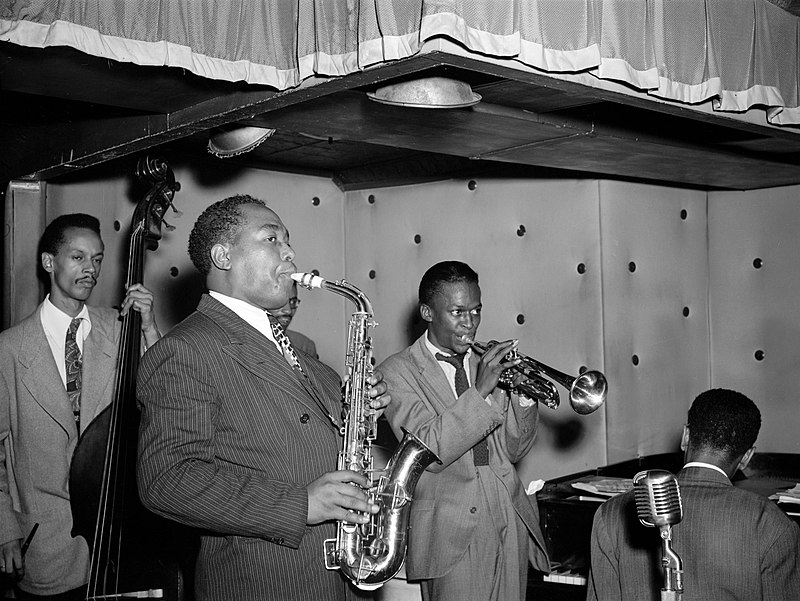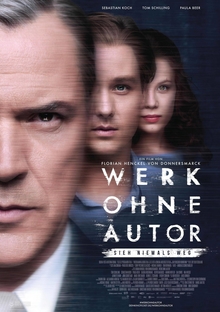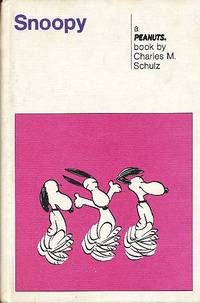by John M. Floyd
Yes, I know: there are a lot of productive things I could and should be doing right now, instead of writing a trivial post about trivia. But, as I've confessed in the past, I love little-known facts about fiction and those who create or portray it.
So, for the next few minutes, I challenge you to forget about the stock market and North Korea and politics and global warming and take a look at these worthless little tidbits about movies and novels and actors and writers. Since they surprised me when I learned about them, I hope they (or at least some of them) might surprise you as well.
- Ian Fleming wrote the children's book
Chitty Chitty Bang Bang.
-
The Curious Case of Benjamin Button was adapted from a short story by F. Scott Fitzgerald.
- Jack Kerouac typed the novel
On the Road on one continuous roll of paper 120 feet long.
- Dooley Wilson (Sam, in
Casablanca) didn't know how to play the piano.
- Dr. Seuss wasn't a doctor, of any kind.
- Harriet Beecher Stowe lived next door to Mark Twain in Hartford, Connecticut.
- The names of the policeman and the cab driver in
It's a Wonderful Life were Bert and Ernie.
- Both Matt Damon and Ben Affleck were extras in
Field of Dreams.
- Between 1982 and 1984, Nora Roberts wrote 23 novels.
- The announcer who replaced Armed Forces Radio DJ Adrian Cronauer (played by Robin Williams in
Good Morning, Vietnam) was Pat Sajak.

- Mel Brooks wrote the lyrics to the theme from
Blazing Saddles.
- Steve Buscemi is a former NYC firefighter.
- The final
Lord of the Rings movie,
The Return of the King, was nominated for eleven Oscars and won all of them.
- Before writing The Da Vinci Code, Dan Brown was a pop singer. One of his solo albums was called Angels and Demons.
- In
Raiders of the Lost Ark, a drawing of R2D2 and C3PO appears on a column in the Well of Souls.
- The novel
Catch-22 was originally titled
Catch-18.
- Robert Louis Stevenson burned stories based on readers' informal responses, Leo Tolstoy's son rescued the manuscript of
War and Peace from the ditch where Tolstoy had thrown it, and Tabitha King pulled the discarded manuscript of
Carrie from Stephen King's wastebasket.
- James Arness (Matt Dillon of
Gunsmoke) and Peter Graves (Jim Phelps of
Mission: Impossible) were brothers.
- William Atherton, who played the obnoxious TV reporter in
Die Hard and
Die Hard 2, sang the "What'll I Do?" theme song during the opening credits of the 1974 (Robert Redford/Mia Farrow) version of
The Great Gatsby.
- "Goldeneye" was Ian Fleming's name for the Jamaican beach house where he wrote all the James Bond novels. Sting later used the same desk to write the song "Every Breath You Take."
- One of the voices of
E.T. was that of Debra Winger.
- Clint Eastwood composed the main theme ("Claudia's Theme") for
Unforgiven.
- Tom Wolfe, who was six-foot-six, preferred to write standing up, using the top of his refrigerator for a desk.
- In
The Abyss, many of the underwater scenes were actually filmed in smoky air, using fake bubbles.
- Olivia Newton-John's grandfather, Max Born, won the Nobel Prize in Physics in 1954.
- Both Erle Stanley Gardner and Agatha Christie dictated their novels. (Though ESG typed his earliest work.)
- To make some of the spacecraft seem larger in the movie
Alien, director Ridley Scott filmed his own two children outfitted in miniature space suits.
- Rowan Atkinson has a master's degree in Electrical Engineering.
- Singer Tex Ritter ("Do Not Forsake Me, O My Darlin'," from
High Noon) was actor John Ritter's father.
- Actor/director Anthony Hopkins composed the music for the movie
Slipstream (2007).
- Clyde Barrow once wrote a letter to Henry Ford (it's on display at the Ford museum in Dearborn, Michigan) praising the V-8 Ford as a getaway car.
-
The Adventures of Tom Sawyer was the first book written using the typewriter.
- Clint Eastwood did all his own mountain climbing--no stuntmen--in
The Eiger Sanction.
- Most of the cast and crew of
The African Queen got sick from the water. Only Humphrey Bogart and director John Huston were unaffected because they drank only whiskey.
- Evelyn Waugh's first wife's name was Evelyn.
- Tom Hanks is a descendant of Abe Lincoln's mother, Nancy Hanks Lincoln.
- The first U.S. paperback edition of Ian Fleming's
Casino Royale was published with the title
You Asked for It.
- Michael Myers's mask in
Halloween was a two-dollar Captain Kirk mask, slightly altered and painted white.
- Carolyn Keene, author of the Nancy Drew novels, was really a pseudonym for a team of several different writers.
- Hoyt Axton (the father in
The Black Stallion) wrote "Heartbreak Hotel."
- Melissa McCarthy and Jenny McCarthy are first cousins.

- The original title of
Butch Cassidy and the Sundance Kid was
The Sundance Kid and Butch Cassidy. It was reversed when Newman decided to take the role of Butch rather than Sundance.
- The same author (Larry McMurtry) wrote
Lonesome Dove and
Terms of Endearment.
- Frank Oz was the voice of Yoda, the Cookie Monster, and Miss Piggy.
- Mickey Spillane ordered 50,000 copies of his 1952 novel
Kiss Me, Deadly to be destroyed when the comma was left out of the title.
- Mia Sara (
Ferris Bueller's girlfriend) has had two fathers-in-law: Sean Connery and Jim Henson.
- Director John Carpenter composed the music for most of his movies.
- Noah Webster was T. S. Eliot's great-uncle.
- Ian Fleming got the name for his fictional spy from a book he owned called
Birds of the West Indies, by James Bond.
- The charcoal sketch of Kate Winslet in
Titanic was actually drawn by director James Cameron.
- Tommy Lee Jones and Al Gore were roommates at Harvard.
- J. K. Rowling came up with the names for the houses at Hogwarts while on a plane. She jotted the names down on a barf bag.
- The keypad on the laboratory's door lock in
Moonraker plays the five-note theme from
Close Encounters of the Third Kind.
- Author Sidney Sheldon created the TV series
I Dream of Jeannie and
The Patty Duke Show, and won an Oscar for Best Original Screenplay for
The Bachelor and the Bobby-Soxer.

- When the kid in
Home Alone 2 walks into the Plaza Hotel, the person he asks for directions is Donald Trump.
- Tom Clancy was part owner of the Baltimore Orioles.
- Cormac McCarthy wrote with the same typewriter for more than fifty years. When it broke, he auctioned it off for more than $250,000 (to donate to charity).
- In World War II, Roald Dahl was a fighter pilot, Donald Pleasance was a POW, Christopher Lee was an undercover agent for British Inteligence, and Charles Durning was awarded the Silver Star, Bronze Star, and Purple Heart.
- When a hurricane hit the set during filming of
Jurassic Park, the pilot who choppered the crew to safety was the man who had played Indiana Jones's pilot, Jock, in
Raiders of the Lost Ark.
- The top three most-read books in the world are
The Holy Bible,
Quotations from Chairman Mao Tse-Tung, and the
Harry Potter series.
- In
The Secret Life of Ian Fleming, Fleming was played by Sean Connery's son Jason.
- Actor Sam Shepard wrote 44 plays; one of them won him the Pulitzer Prize for Drama in 1979.
- The roles of both John McClane in
Die Hard and Harry Callahan in
Dirty Harry were first offered to Frank Sinatra.
- When J. K. Rowling wrote
Harry Potter and the Sorcerer's Stone, she typed three separate copies of the manuscript because she couldn't afford copying fees.

- Samuel L. Jackson's
Pulp Fiction quote from Ezekiel was originally written for Harvey Keitel's character in
From Dusk to Dawn.
- Chocolate syrup was used as blood in
Psycho's shower scene; it was also used as the Tin Man's oil in
The Wizard of Oz.
- Mary Shelley began writing
Frankenstein when she was eighteen, and it was published when she was twenty.
- Mystery writer John Sandford, a.k.a. John Camp, won a Pulitzer for Non-Deadline Feature Writing in 1986 for articles about the life of a Minnesota farming family.
- Of his 70-plus film roles, Gregory Peck played a villain only twice (I think), in
Duel in the Sun and
The Boys From Brazil.
- Dolph Lundgren has a master's degree in Chemical Engineering.
- In the UK,
Fifty Shades of Grey is the best-selling book of all time.
- George Lucas had a dog named Indiana.
- Robert Duvall had a bit part as Steve McQueen's cab driver in the movie
Bullitt.
-
The Salvation (2014) was a Western filmed in South Africa, with a Danish director and actors from Germany, France, Spain, Italy, Sweden, Denmark, the U.S., and England.
- Haley Joe Osment, the boy who "saw dead people" in
The Sixth Sense, played
Forrest Gump's son five years earlier.
- Tippi Hedren (
The Birds) is the mother of Melanie Griffith and the grandmother of Dakota Johnson.
- Kurt Vonnegut managed America's first Saab dealership.
- Denzel Washington and Jeff Goldblum both played thugs in 1974's
Death Wish.
- As a child, Roald Dahl--the author of
Charlie and the Chocolate Factory--was a taste-tester for Cadbury's chocolate.
- Nathaneal West's 1939 novel
The Day of the Locust features a character named Homer Simpson.
- In
High Plains Drifter, one of the headstones in the cemetery was inscribed with the name Sergio Leone.
- Married (at one time or another): Geena Davis/Jeff Goldblum, Rachel Weisz/Daniel Craig, Calista Flockhart/Harrison Ford, Marlo Thomas/Phil Donahue, Rita Hayworth/Orson Welles, Uma Thurman/Gary Oldman, Dyan Cannon/Cary Grant, Lorraine Bracco/Edward James Olmos, Catherine Keener/Delmot Mulroney, Mia Farrow/Frank Sinatra, Christie Brinkley/Billy Joel, Barbara Streisand/Elliott Gould, Brooke Shields/Andre Agassi, Lisa Marie Presley/Nicolas Cage, Mary Steenbergen/Malcolm McDowell, Isabella Rosselini/Martin Scorcese, Madonna/Sean Penn, Penelope Ann Miller/Will Arnett, Michelle Phillips/Dennis Hopper, Mimi Rogers/Tom Cruise, Helen Hunt/Hank Azaria, Drew Barrymore/Tom Green, Katherine Ross/Sam Elliott, Scarlett Johanssen/Ryan Reynolds.
-Dated (at one time or another): Helen Mirren/Liam Neeson, Anjelica Huston/Jack Nicholson. Sarah Jessica Parker/Robert Downey Jr., Courtney Cox/Michael Keaton, Whoopi Goldberg/Frank Langella, Carrie Fisher/Paul Simon, Jeanne Tripplehorn/Ben Stiller, Meryl Streep/John Cazale.
- Barbie in
Toy Story 3 is voiced by Jodi Benson, who also voiced Ariel in
The Little Mermaid.
-
Paranormal Activity cost $15,000 to make and has grossed $210 million;
Deep Throat cost around $25,000 and grossed $600 million;
John Carter cost $350 million and lost $200 million.
- Mickey Spillane was at one time the author of seven of the ten best-selling novels in history.
- Sean Connery wore a toupee in all of his James Bond movies.
And maybe the most valuable and surprising piece of trivia of all:
- Katy Perry's cat's name is Kitty Purry.
(Don't ever say I didn't give you the inside info.)
Can you think of any crazy and lesser-known movie/novel/actor/author facts? Inquiring minds want to know . . .






























